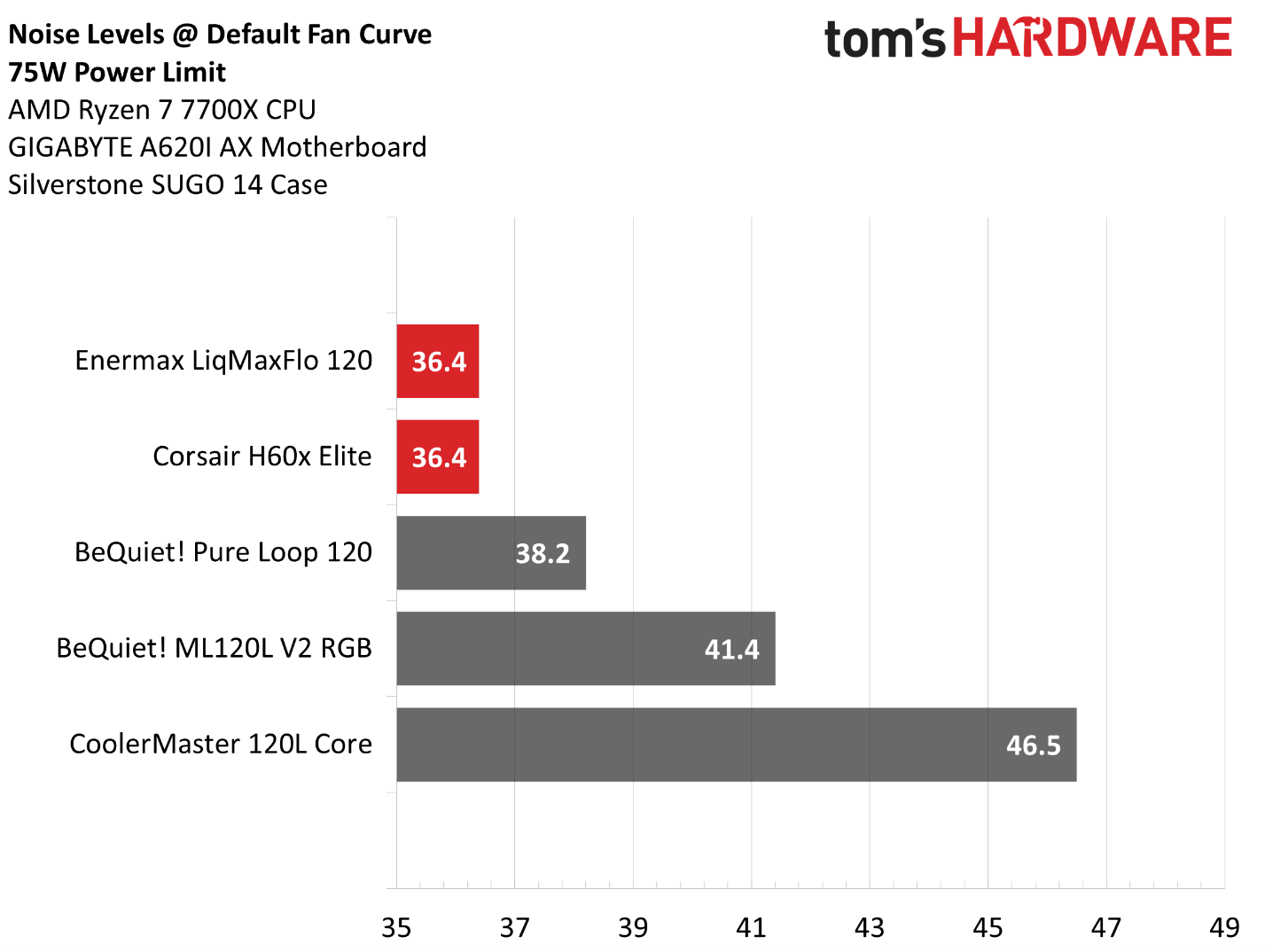Benchmarks and Conclusion
Maximum Intensity Thermal Testing and Noise Levels
In the most intense workloads, AMD’s Ryzen 7 7700X will reach its peak temperature of 95 degrees Celsius, and as a result will thermally throttle to a small degree with all but the strongest of liquid coolers. When the CPU reaches its peak temperature, I’ve measured the CPU package power to determine the maximum wattage cooled to best compare their performance.
Of the coolers tested here, Be Quiet’s was the strongest, cooling approximately 118W during the course of testing. Of course, that is only half of the picture – noise levels are equally important.
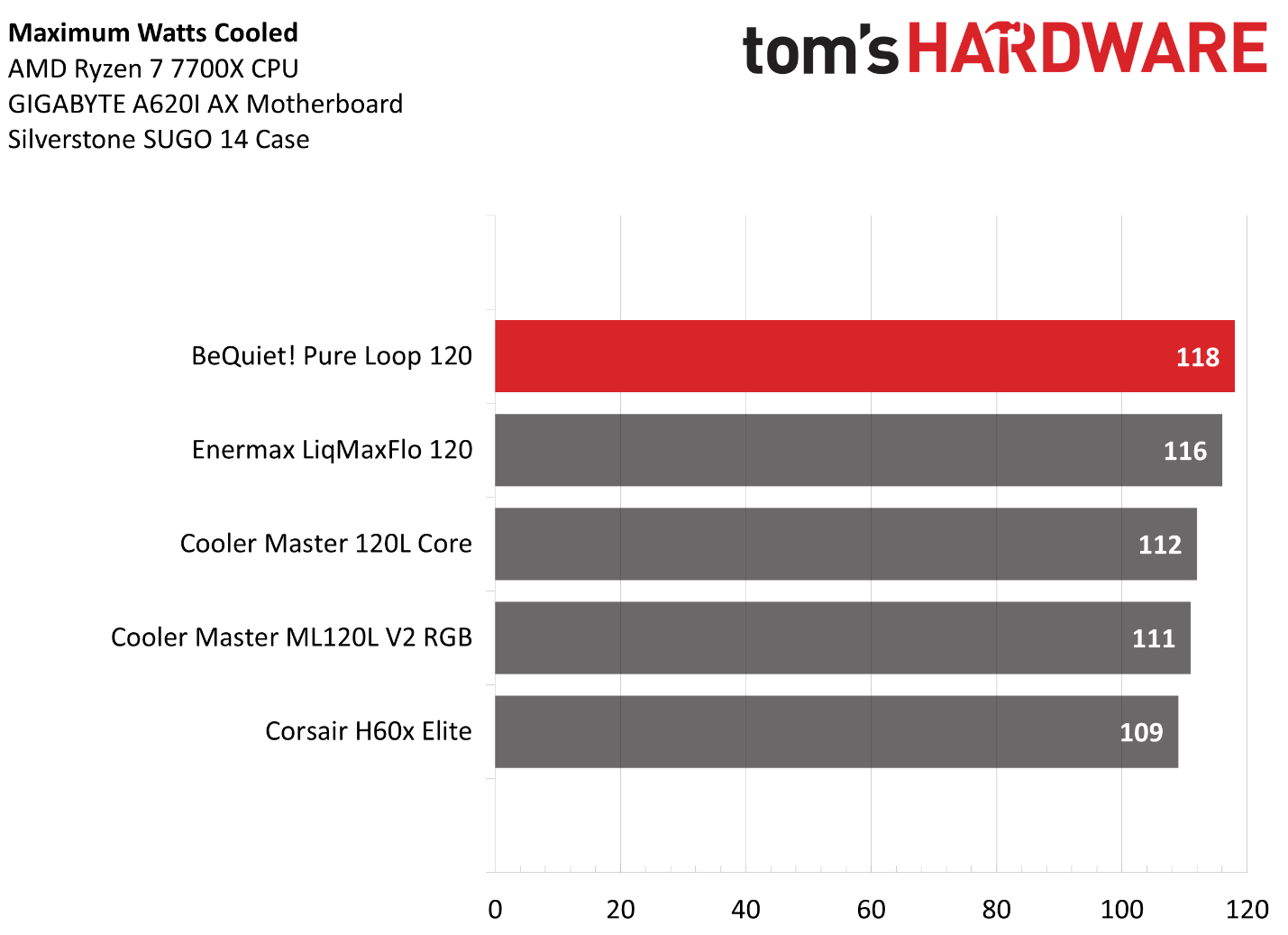
The noise levels have quite a bit of variance here. Corsair’s H60x had the most ideal noise levels, reaching only 38.2 dBA. Cooler Master’s 120L was the loudest, reaching 46.5 dBA! But when you consider both the thermal results and the noise results, Enermax’ LiqMaxFlo had the best showing overall, with the second-strongest cooling results paired with the second-quietest noise levels.
Thermal results with noise normalized to 37.3 dBA
Finding the right balance between fan noise levels and cooling performance is important. While running fans at full speed can improve cooling capacity to some extent, the benefits are limited and many users prefer a quiet system. With this noise-normalized test, I’ve set noise levels to 37.3 dBA. This level of noise is a low volume level that is slightly audible, but shouldn’t bother even the most noise-sensitive of users.
When the fans are manually tuned for low noise levels, Be Quiet lives up to its name, providing the best thermal dissipation in this noise-normalized test.
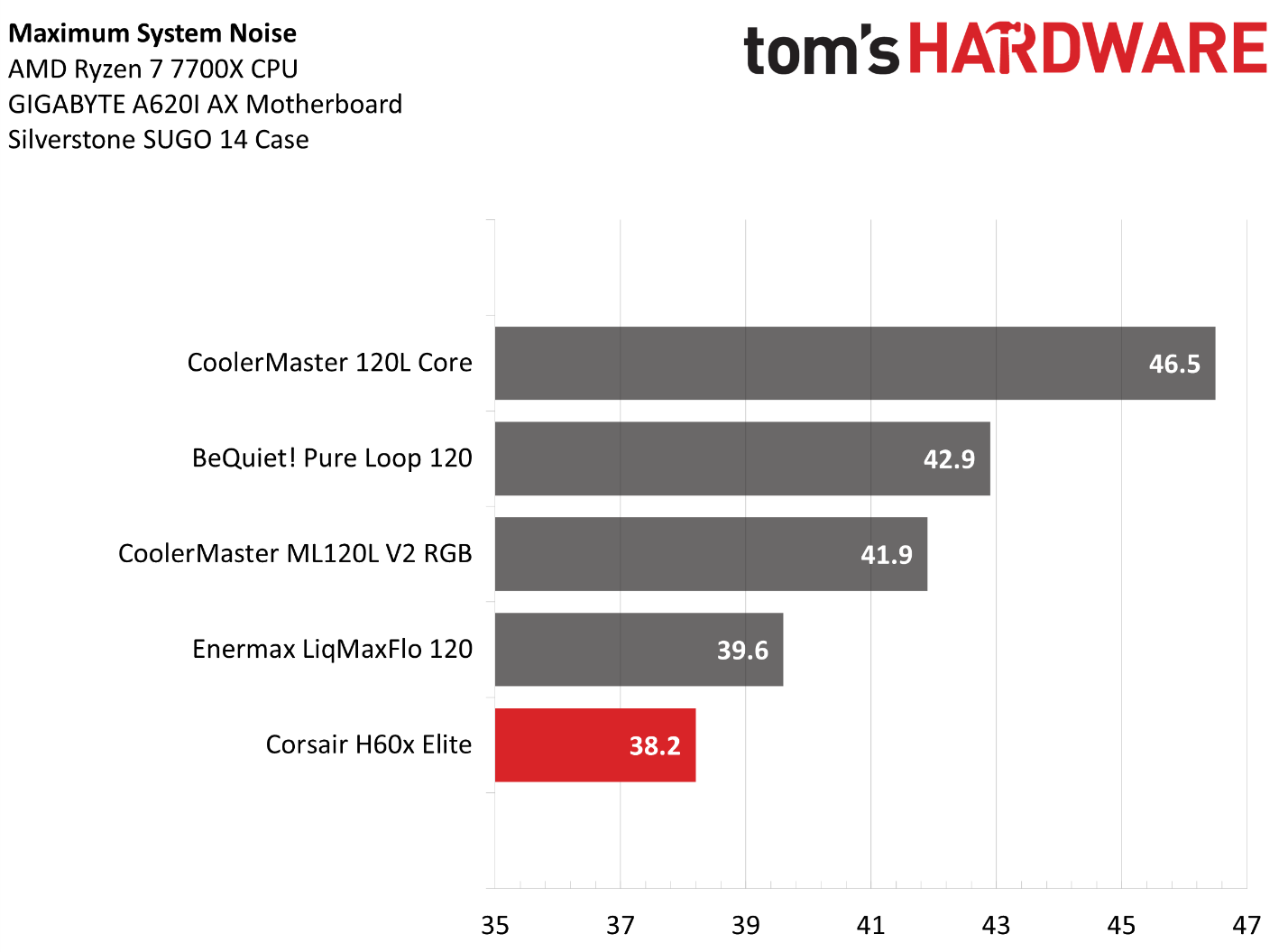
95W Cinebench results
For a CPU like AMD’s Ryzen 7 7700X, common workloads won’t exceed 95W of power consumption – this is what you might expect from the most CPU-demanding games.
Be Quiet’s Pure Loop 120 again provided the best overall results heere, averaging only 78 C in our 23 C ambient temperature test setup. Noise results weren’t tested in this scenario, because they were essentially the same as the maximum noise results, due to the default fan curve.
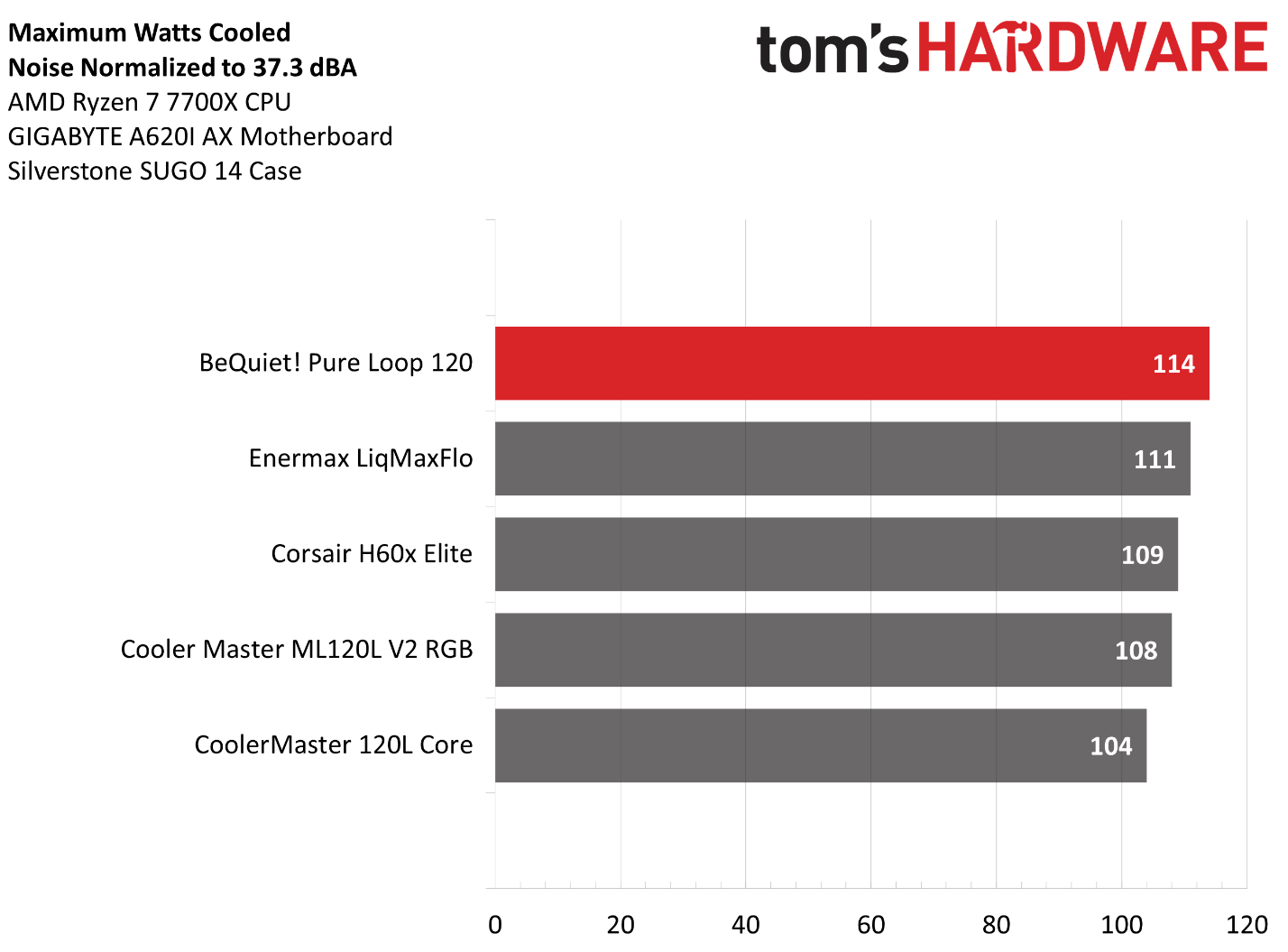
Get Tom’s Hardware’s best news and in-depth reviews, straight to your inbox.
75W Cinebench results
The lowest power limit I’ve tested for these 120mm AIO coolers is 75W. This power level is more typical of what most users might see while running AMD’s Ryzen 7 7700X. Most games will use around 70W, in my experience.
Thermals don’t really matter in this scenario. If Intel’s stock cooler fit onto an AM5 motherboard, it would even perform well enough here. That said, Be Quiet’s Pure Loop 120 again provided the best thermal results, with a CPU package temperature of 65C.
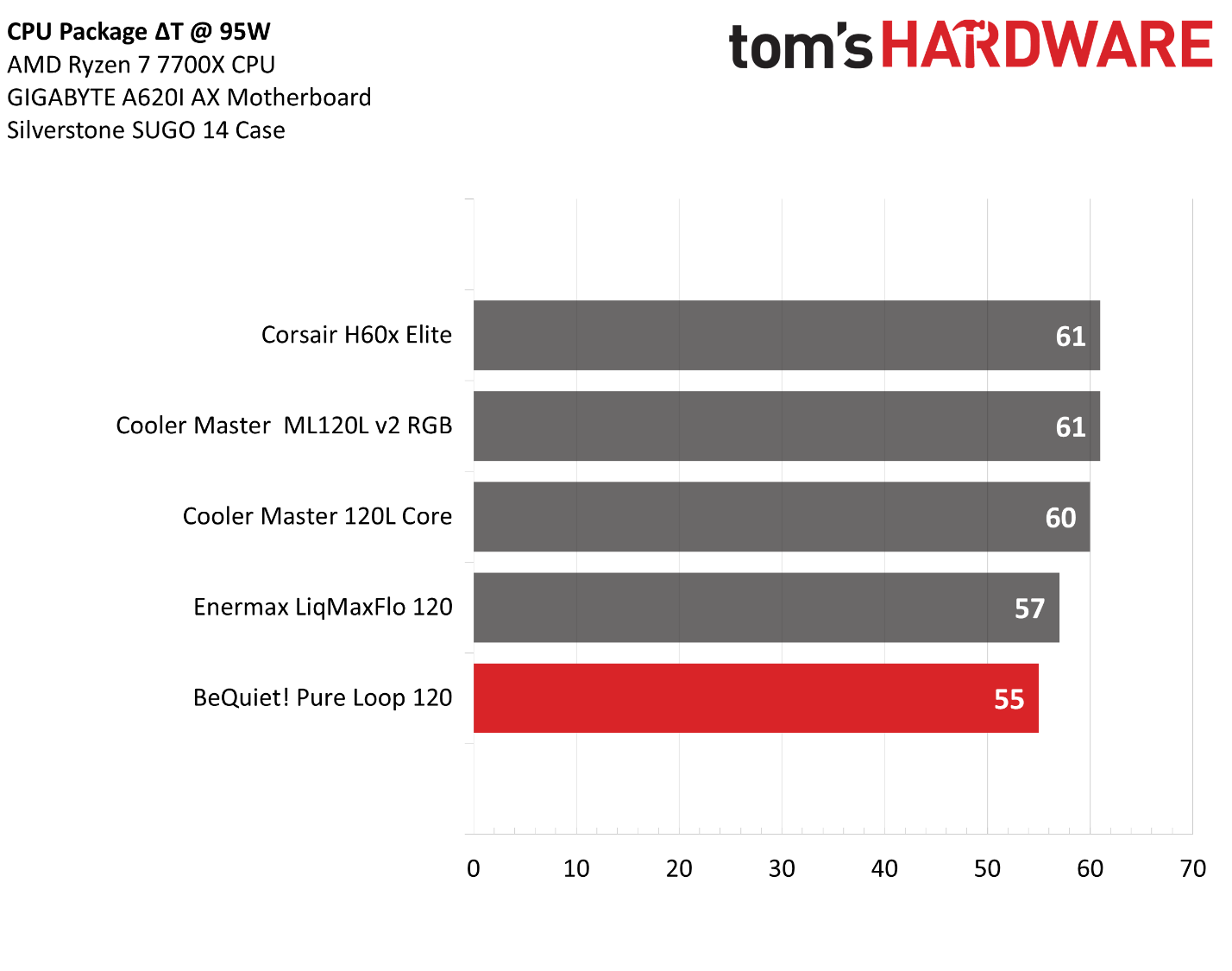
When noise levels are taken into account, however, Corsair’s H60x Elite and Enermax’ Liqmax Flo offer the best performance in common scenarios. Their volume levels measured only 36.4 dBA in this scenario – which is about as low as my noise meter can reliably measure.
Conclusion
If I were in the market for a 120mm AIO, my choice of the coolers tested would be Enermax’ LiqMaxFlo 120mm. While it doesn’t offer the absolute best thermal results in maximum intensity workloads, it offers an ideal combination of thermal performance and low noise levels. Additionally, the fan atop its CPU block will help keep your VRMs and RAM cool, which can be useful for systems with less-than-ideal airflow. And systems like that are exactly where you’re most likely to want to use a small AIO in the first place.
If you simply want the best thermal performance, get Be Quiet’s Pure Loop 120 – but it runs a little bit louder, it costs about $10 more than the competition, at $90. Users who want the quietest overall experience should consider Corsair’s H60x Elite, which when we wrote this was selling for $80.
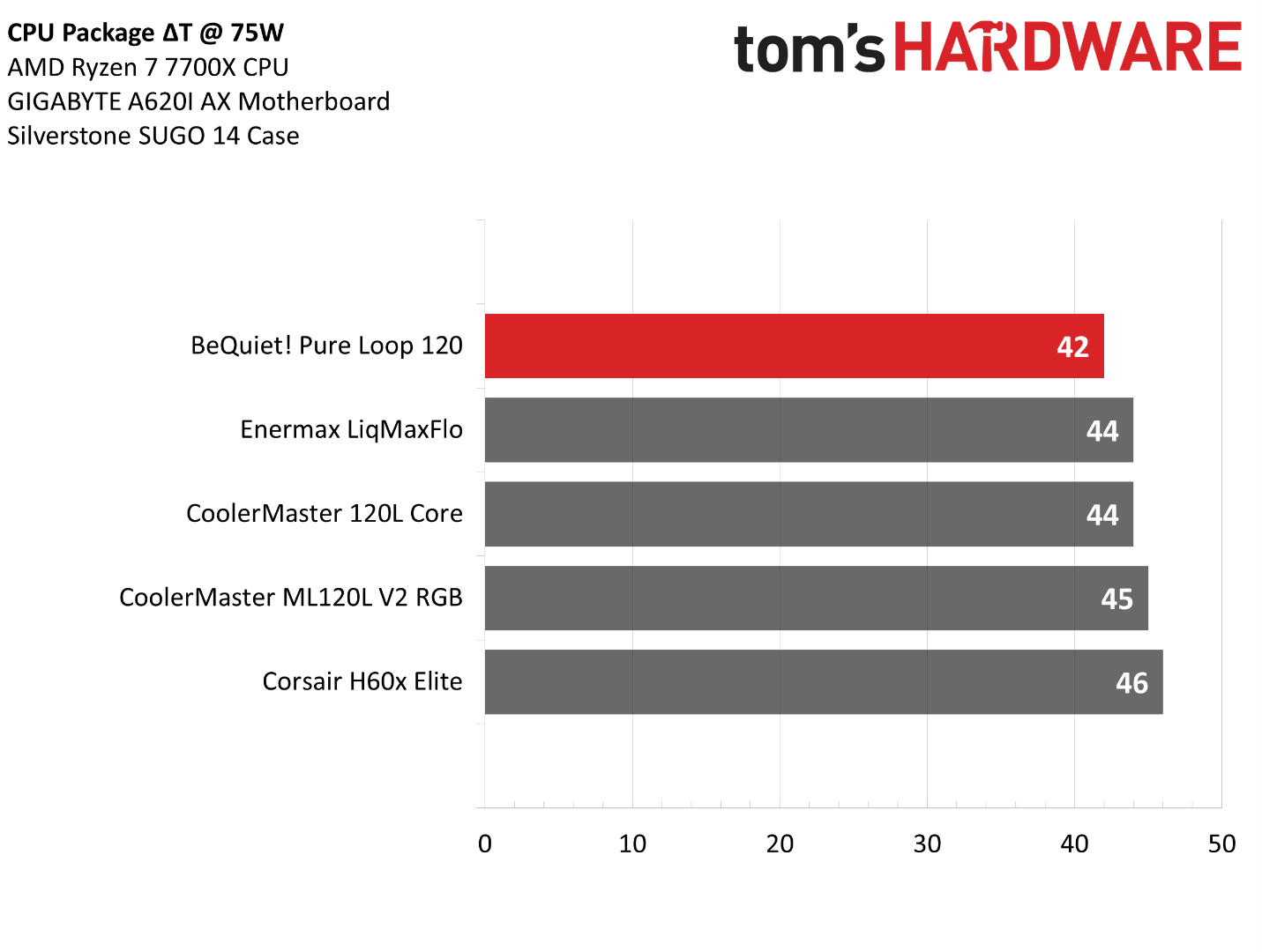
Current page:Benchmarks and Conclusion
Albert Thomas is a contributor for Tom’s Hardware, primarily covering CPU cooling reviews.
